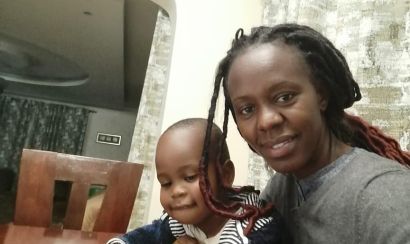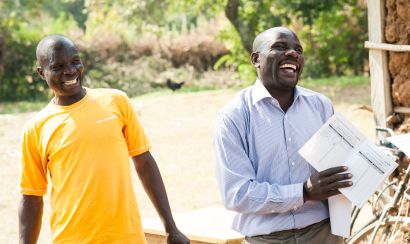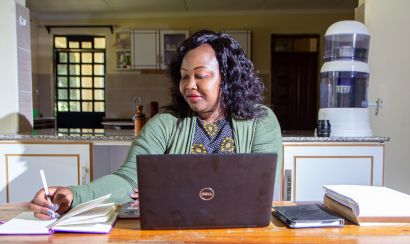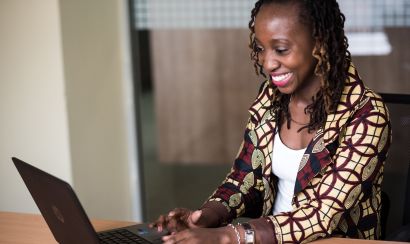How our Work Culture has Evolved During COVID-19
Raïssa Muhaturukundo is the Internal Communications Lead at One Acre Fund Rwanda. She describes her job as “to inform, listen to, inspire, and appreciate staff.” She works to ensure employees in Rwanda have a holistic view of the organization, not just snippets of it. Her role involves producing and delivering messages and communications to staff, connecting staff to country leadership and facilitating dialogue — anything from announcing a new policy or informing people of an upcoming event, to conducting org-wide engagement on key strategic priorities. She loves inspirational movies because they stand for a cause, and action thrillers for their sense of justice.
She talks about the coronavirus pandemic as an opportunity to emphasize the place of our organizational culture, and how we have adapted to the world of COVID.
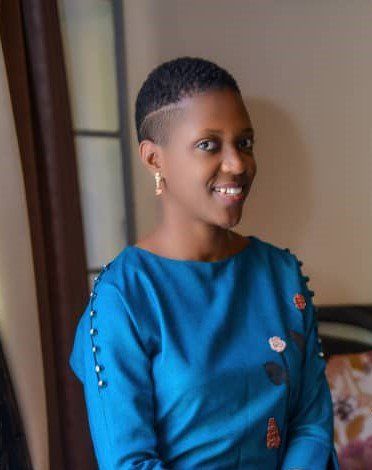
What inspires you to be good at your job and to succeed every day?
Our farmers. Knowing that what I do creates a positive impact for farmers is all the motivation I require. I place smallholders highly. Their job isn’t the easiest, yet they wake up every day with the will to feed their families and communities, and to create a better future for their loved ones despite the numerous challenges they face. Supporting them to attain their dreams is very fulfilling for me.
What has working from home been like for you?
I like to look at it as an experiment, and it has been more intense than I expected. Besides managing my own time, I have also had to self-motivate to accomplish my tasks and remain productive. I have learned that sometimes it takes superhero effort to balance family and work at home! But it has also been my revelation that I love flexibility — the freedom to rearrange tasks and still get everything done.
You are a parent of a toddler. How has that been like while working from home?
At the very start, I thought ‘I should be able to do it’, but it’s hard, unlike any challenge I’ve ever experienced! Working from home with a toddler — my daughter is called Saro — is certainly no picnic. For example, when Saro cries, I’ll want to go comfort her even though she is with someone else in the house; it’s just instinct. Even when she isn’t distressed, my baby cannot understand how I’m home and not playing with her.
Although I created a schedule and set up a workstation at home, the real work has been in committing to it and toughing it out when Saro demands my attention. But I have learned and tried to ‘be at work’ when I’m working, and to utilize my lunch break to be with her. During the times when I have gone off course, I have tried to make up for the lost time during breaks. At the end of the day, it has been about finding the best balance.
Wow, tough job! Have you learned anything new during the pandemic?
Several things, actually. One, change is inevitable. Secondly, no matter how bad the situation, people will always find creative ways to cope and deal with difficult situations.
Did you pick up any new hobbies during the lockdown?
I have always loved movies, but I have become something of a buff lately. Movies became an escape when we could not go out, but they have also become a time for family bonding. I love inspirational movies — I thoroughly enjoyed ‘42’, a biographical sports drama, when I started — and action thrillers. I love stuff from the Marvel Cinematic Universe.
Do you have a favorite action hero?
I’d say everyone from Marvel, I think they are all awesome! But, if I had to cross over to the DC Universe, that’d be Wonder Woman — every version of her, but especially Gal Gadot’s character.
In the new normal of working from home, how have you stayed connected with the organization’s mission and culture?
I have to say I miss pre-COVID workplace interactions — seeing colleagues smile and laugh, and having instant, real conversations with them. COVID has been something to endure and get accustomed to, so I have tried to be deliberate about ‘seeing’ and talking about our mission and culture because they contextualize our work. I have thought about what it means to own my results while working from home and tried to see if how I work from home tallies with my definition of that principle while working from the office.
How have you kept yourself accountable to your work while working from home?
One of the more difficult things to get used to is to sort of work in ‘isolation’ and then try and fit that into our overall mission. I have found the Field Officer Buddy programs, which paired office and field staff as a way of offering moral support to our field staff — and particularly the Rwanda team’s ‘Thank a Farmer’ campaign, in which we talked to farmers on the phone — to be very inspiring. It was surreal to hear a farmer express how nice it was for them to hear from someone they have never spoken or interacted with, and very satisfying for me to thank them for their commitment and hard work.
Finally, I look forward to my weekly check-ins with my manager a lot more because they are a chance for me to take stock of what I have accomplished and to stay connected with my role within the organization’s mission.
Has it been important for you to stay in touch with your colleagues beyond communicating for work?
For me, coworkers are also friends, so yes, it has. It has been important for me to know how my team, colleagues, and work friends are doing, and for them to know they have my support and care.
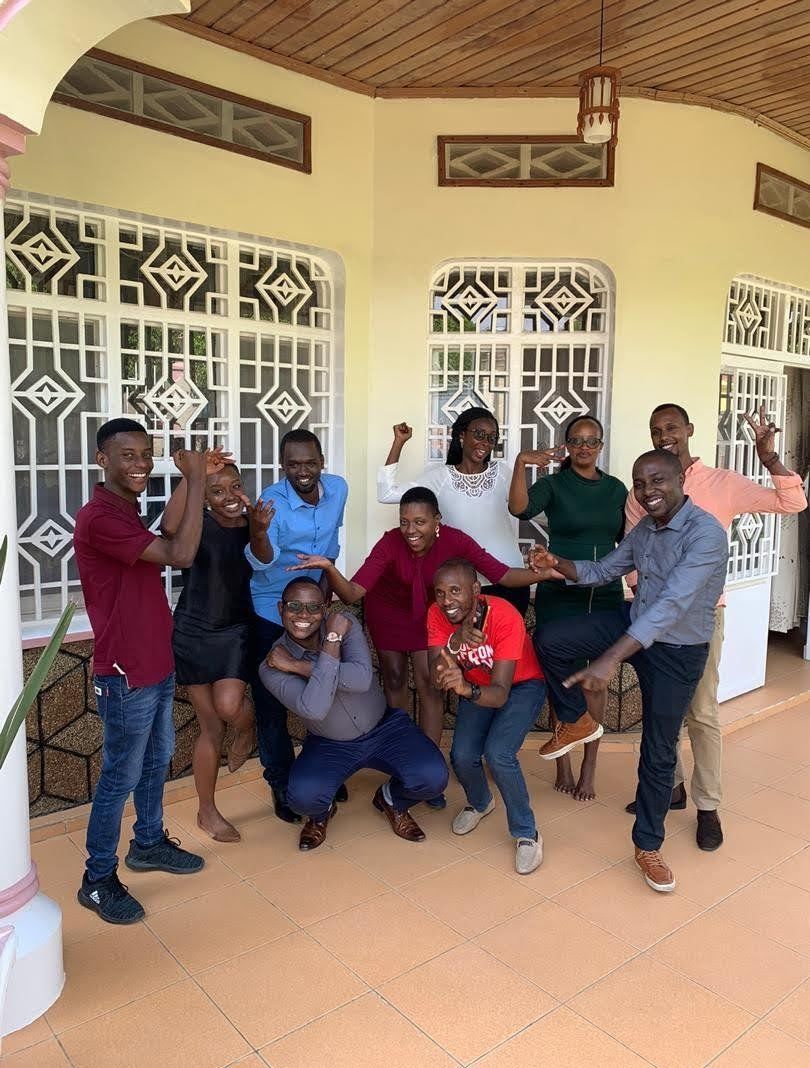
The Rwanda Government Relations and Communications teams during a recent team building event.
Are there any virtual connections from this year that feel especially memorable?
I can recall a couple. Our first-ever virtual Rwanda All Department Meeting brought together more than 140 of us. It was great to see staffers from different levels across the organization engage, ask questions, and share ideas on our work. The other was a virtual Zoom party. It was a chance to unwind and connect with colleagues and friends on a personal level. I had some great conversations and caught up with how people were generally doing.
Which of the organization’s values are aligned with values that you consider important in your professional life?
That is a difficult choice to make because all six are important to me, but I would single out Hard Work, Continual Growth, and Family of Leaders.
How have you seen these at work during COVID?
For starters, the pandemic came with a whole lot of challenges, but we have worked extremely hard, many times going above and beyond in service to farmers while innovating new ways to support their work and ours. Secondly, we have continued to dream big and scale our goals without being intimidated by the setbacks the pandemic brings. Lastly, staff at different levels have tirelessly stepped up to champion their work and support their peers, to ensure that nothing fell through the cracks. We have exemplified what it means to be a Family of Leaders.
This year has felt especially hard for many people around the world. Do you feel the organization has been able to support staff during the pandemic?
I felt, from the very start, that One Acre Fund gave the health and welfare of its staff priority, and this reflected in the steps it took, including regularly communicating ways to stay safe, and providing tools, such as masks and hand sanitizers, for field staff. I appreciate these measures, including the introduction of counseling programs to cater to our mental wellness, as well as support to adjust to and work virtually. The effort felt authentic.
Looking at our new DEI commitments, how do you think they reflect staff feedback, and how effectively does ongoing DEI work respond to such feedback?
I honestly think that we are on the right path. The whole process is a little slower than we thought, but that is because we are not glossing over the things we need to change. Staff feedback identified discrepancies in career progression, representation, and inclusion in decision making, among other things. We have been reexamining exclusionary policies and structures and operational processes to lay our foundations anew in response. There is a lot of hope pegged on the end result, but the most inspiring thing for me is that we acknowledged the problem, committed resources to finding its root causes, and are actively working to find a solution. For example, we have diversified the functions and identities of our new Leadership Council to lay a stronger strategic vision for the organization and to be more in touch with our teams and clients. This is a huge win. Importantly, our DEI commitments are our acknowledgment that culture evolves and that we are willing to evolve with it. And, right from our senior leadership to the farm, we acknowledge that this is not going to be an easy job to do; but we have been frank with each other about where we want to be and what we need to achieve our goal.
Remote working has moved us away from office-based delivery to an anywhere-based model. How have you seen the organization evolve in applying digital working tools to improve the quality of our communication and collaboration?
If, before COVID, someone had told me that I’d one day be a fan of remote working, I would have thought them crazy. Work was a bustling office, with real people, not images of them. When we organized meetings, we thought about the number of people and the size of the room, which we also had to book in advance, and perhaps arrange transport for out-of-office engagements. With remote working, these are not things we think about anymore. We can hold large meetings, with the chance that a lot more people can contribute. And we have gone beyond using tools like video conferencing to attend workshops to using them to build trust and relationships virtually. We have become more adept at communicating through virtual tools. It is a whole new world.
At a personal level, work is no longer just about meeting targets; it is a way for me to connect with people and relive the sense of community I knew before COVID. I work closely with people I have never met before, and I have to think about how to accommodate their personas and feelings through a screen to create a sense of cohesion and instill a sense of physical proximity. And if I am texting or emailing someone about work, I try to share my passion for work and the projects I am pursuing. I have learned to be considerate because although working from home might be a shared phenomenon, the experiences are never the same.
In your experience, to what extent has remote working accelerated digital transformation and how we communicate with farmers/field staff?
When it became apparent that remote working would be our new way of life, one of the most urgent things we needed to do was to ensure that the people closest to the farmers (field staff) and farmers themselves had the support they needed from non-field teams. For instance, the comfort level among office staff in navigating technology was higher than in field teams. So, in deploying field technology, we needed to accelerate knowledge transfer by developing easy-to-navigate functions and applications on the tablets and phones we acquired for fieldwork. I think it is a source of pride that we attained effective communication channels between field and office teams to support vital operations such as farmer enrollment, input delivery, and farming training.
The once-unfamiliar concept of working from home has opened up conversations about the possibility of choosing whether to work remotely or from the office. Is this a scenario you think about? And how do you see this conversation panning out in the organization?
Allow me to respond with a practical example. The Rwanda program delivered its biggest impact yet (more than $100) in 2020 while we were working from home — we measure impact as the dollar value of extra crop harvests and assets obtained by working with us. What this demonstrates is that the idea that working from home affects performance and productivity may not be accurate after all. It is possible that we will keep modifying our work model, and it is helpful to know that we can reconfigure how and where we work and still meet, even exceed, our objectives.
